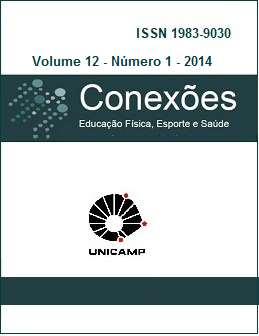Resumo
The objective of this study was to determine the effect of a program based on motor
games to stimulate the basic motor skills in students who have motor deficit in Physical
Education NB1 in a group of 11 boys/girls who were chosen intentionally from a
neuromotor development test (TGMD-2). This group attended, during 12 weeks, 2
sessions of 30 minutes of motor activities based on motor games. The sessions were
taught by two Physical Education teachers, in separate activities at assigned schedules
for systematic lessons of Physical Education. At the end of the 2 weeks, the students
were evaluated again according to TGMD-2. The results show that 91% of the students
of the experimental group improved their neuromotor development, thus achieving
expected results for their chronological age.
Referências
BRASIL. Congresso Nacional. Constituição da República Federativa do Brasil. Brasília, 1988.
BRASIL. Ministério da Educação e Cultura. Lei n0 9394, de 23.12.1996: diretrizes e bases da educação nacional. Brasília, 1996.
BRASIL. Ministério da Educação e Cultura. Lei no 10.172, de 9.01.2001: plano nacional de educação 2001-2011, Brasília, 2001.
LIBANEO, J. C.; OLIVEIRA, J. F.; TOSCHI, M. S. Educação escolar: políticas, estrutura e organização. 10. ed. São Paulo: Cortez, 2012.
BRASIL. Câmara dos Deputados. Projeto de lei do plano nacional de educação (PNE 2011/2020): projeto em tramitação no Congresso Nacional/PL no 8.035/2010/organização: Márcia Abreu e Marcos Cordiolli. Brasília: Edições Câmara, 2011.
SÃO PAULO (Estado). Secretaria da Educação. Proposta curricular do estado de São Paulo: educação física. São Paulo: SEE, 2008.
KUNZ, E. Transformação didático-pedagógica do esporte. Ijuí: Ed. da Unijuí, 1994.
KUNZ, E. Pedagogia do esporte, do movimento humano ou da educação física? In: KUNZ, E.; TREBELS, A. H. Educação física crítico-emancipatória Ijuí: Ed. da Unijuí, 2006.
MINAYO, M. C. S.; DESLANDES, S. F.; GOMES, R. Pesquisa social: teoria, método e criatividade. 27. ed. Petrópolis: Vozes, 2008.
O periódico Conexões: Educação Física, Esporte e Saúde utiliza a licença do Creative Commons (CC), preservando assim, a integridade dos artigos em ambiente de acesso aberto.


